Flesch Reading Ease: What a Readability Test Means for SEO
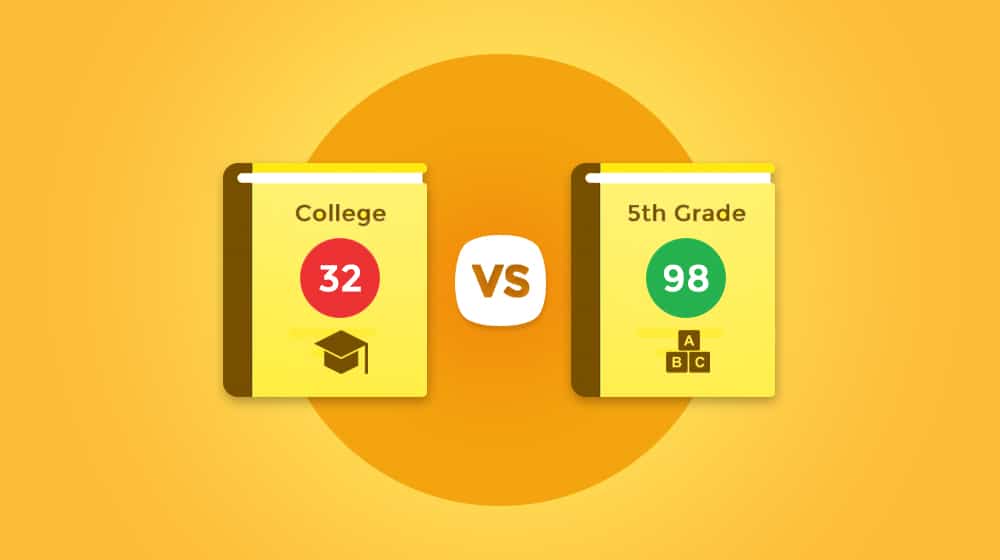
Depending on who you talk to, readability tests are either essential for SEO or near-completely meaningless.
Which is it? I was curious, so I did some research. Here's what I've found.
What are Readability Tests?
The more complex a sentence is, the more words it uses, and the more complex the expressions are, the higher the reading level of the text (resulting in a lower score). I tend to write pretty complex sentences and use big words, so my reading level is often relatively high.
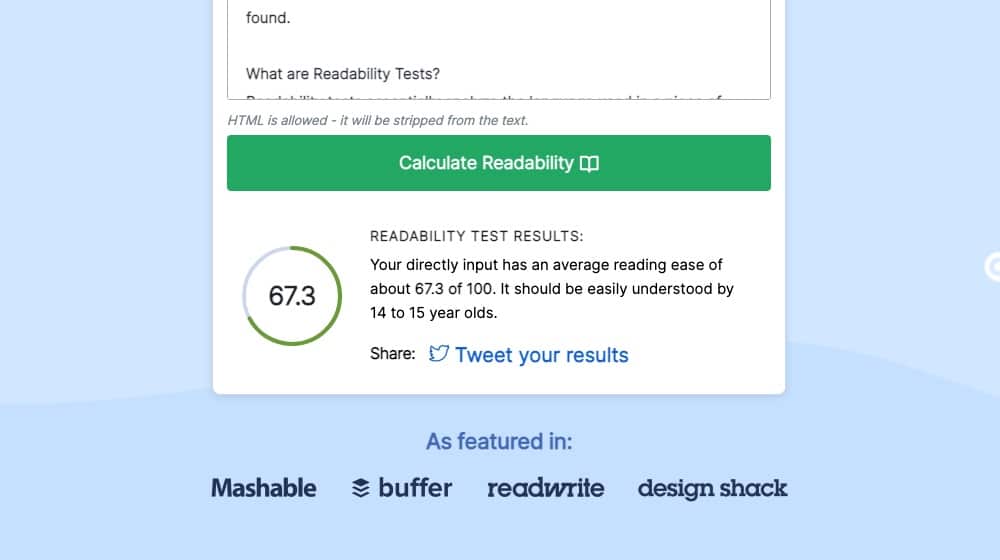
You'll generally see readability tests used for a few different reasons.
- To balance out the reading level of content created by different authors.
- To adjust the complexity of a piece of writing for specific audiences, particularly for grade school levels.
- To estimate the overall complexity of a piece of content.
I've seen readability tests used to "dumb down" content for certain consumption areas, though that's not an appropriate use.
In marketing, you often see readability as a metric in part of general content analysis. Yoast, for example, integrates the FRE as one of their metrics and recommends making your writing more straightforward.
What is the Flesch Reading Ease Test?
The FRE is the Flesch Reading Ease test, developed by Rudolf Flesch in 1948. It's a relatively simple mathematical analysis of a piece of text. The equation looks like this:
206.835 – 1.015 ( total words in a piece / total sentences ) – 84.6 ( total syllables / total words )
So, the first parenthetical is the average number of words per sentence, and the second is the average number of syllables per word.
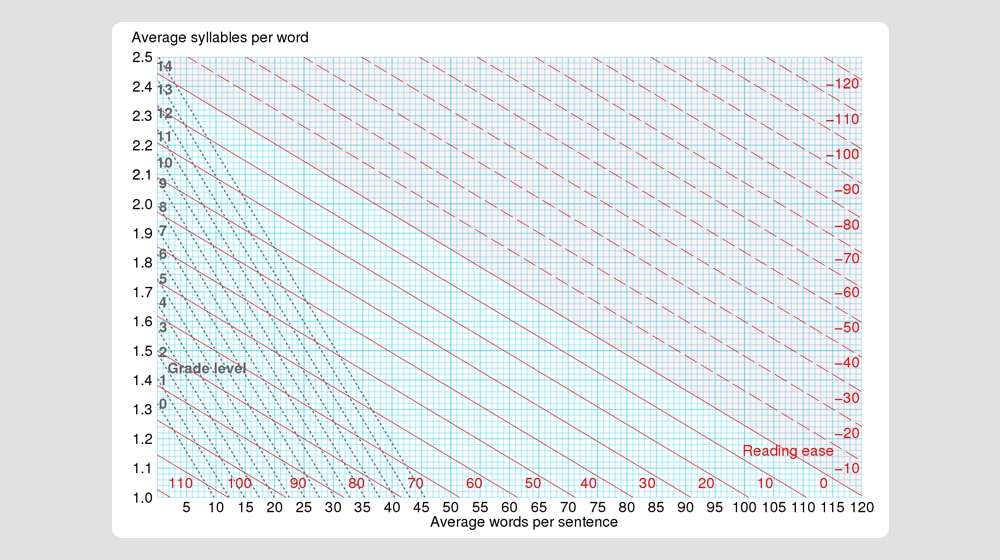
What are the other numbers, though? The truth is, they're just values chosen so that the result of the full equation fits somewhere on a 1-100 scale.
1 is a relatively complex, dense, and difficult-to-read passage, and 100 is easy-to-read, simple text suitable for 5th graders.Often, you'll see the Flesch test as part of a two-part test called the Flesch-Kincaid Readability Test. This two-part test also uses the Flesch-Kincaid Grade Level Test, which is used primarily in schools and doesn't apply to marketing or SEO, so we don't pay much attention to it.
Do Readability Tests Matter for SEO?
Yoast SEO, the most popular WordPress SEO plugin with over 5,000,000 installations, uses Flesch as a metric.
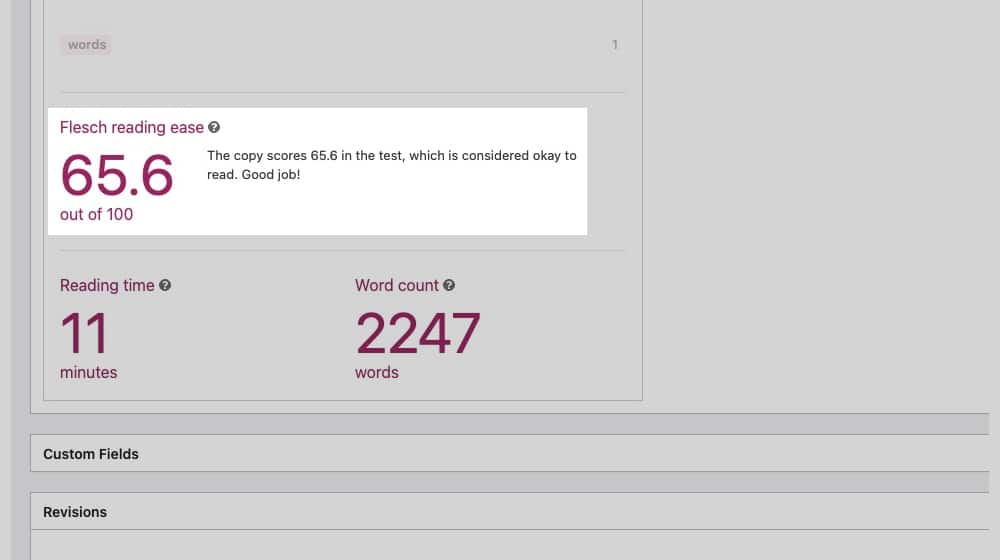
If you look it up, you'll also see hints that Google and other search engines take content's readability into account, and sites like RankFuse say this:
"Google looks at readability when it ranks content, and it uses the Flesch Reading Ease Score to do so. For Google, the idea is to mimic how a human reads content. This is why keyword stuffing is now problematic for web content. Like humans, Google wants to read something clear and easy to understand."
This statement is only half true. Google cares about readability and keyword stuffing, but do they use the Flesch Reading Ease test in any capacity?
Back in 2018, John Mueller said this:
"So from an SEO point of view, it's probably not something that you need to focus on, in the sense that, as far as I know, we don't have kind of these basic algorithms that just count words and try to figure out what the reading level is based on these existing algorithms."
To me, what this says is that Google explicitly does not use something as simple as the Flesch Reading Ease test, and there is much more to the puzzle of determining which pages are excellent and relevant. You can fit thousands of different signals under "readability."
Now, Google definitely used to have a reading level analysis as part of their algorithm. They even used to show it to you in the search results. That was over a decade ago, though. Things change, and no one can deny that Google is infinitely more complex than it was back then. This analysis was before Panda and even before latent semantic indexing; it's a different world now.
In case you think I'm not backing this up, Ahrefs also did a "mini-study" looking at 15,000 keywords and had this to say:
"In 2018, John Mueller from Google said he's not aware of any algorithms that use basic readability scores. And since FRE is pretty basic with just two variables at play, it wouldn't really make much sense to use it. So no, readability scores like FRE don't directly affect rankings. This is backed up by our study of 15,000 keywords, which found virtually zero correlation between rankings and FRE scores."
They found no correlation at all, either positive or negative, between ranking and reading level.
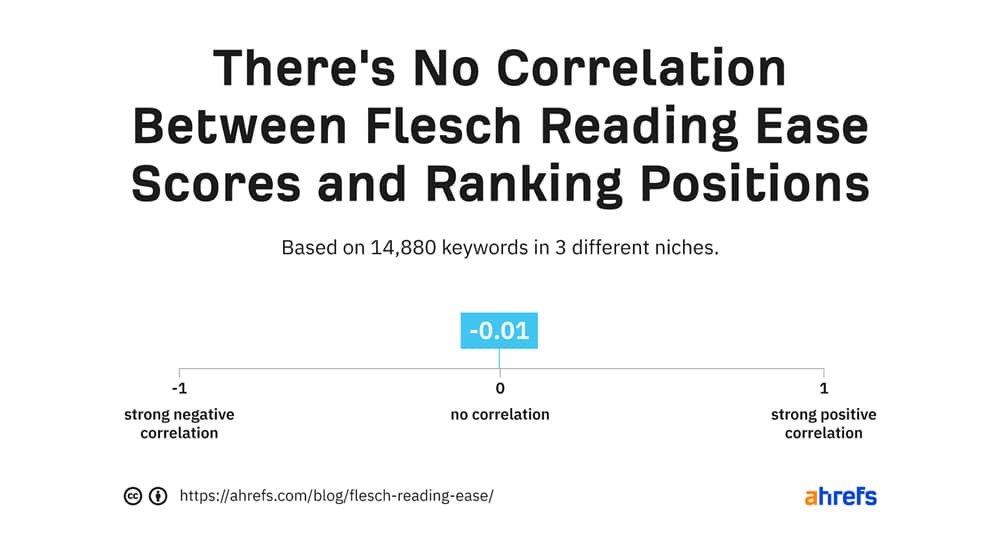
It doesn't matter whether you write at a grade-school level or at a PhD level; the Flesch reading level itself won't affect your rankings and isn't a ranking factor.
Is It Still Valuable to Optimize Your Reading Level?
I'll say two things here.
1. First, I pretty much never pay attention to reading levels, other than to look at the metric and go "oh, neat." I tend to write at a moderately high level because some of the topics I discuss are more complex or technical. In many cases, striving toward a positive readability score would confuse my audience or reduce the quality of those posts. You can't even talk about "readability" without raising your reading level because the English word "readability" has more syllables than average and will crank up the score.
2. Second, a readability score can be helpful in certain circumstances if you know what it means and what your target is.
Why? It all depends on three factors. The first is your target audience, the second is the kind of topic you're covering, and the third is the depth of explanation you want to go into and the purpose of the content.
1. Factor one: your audience's knowledge level.
The first factor is your target audience, and more specifically, their skill level.
If you're writing to children and giving them a basic primer on programming, you'll write about how "it's using something called a programming language to tell a computer what to do." On the other hand, if you're writing a primer on programming for a college graduate reader, you might write more about syntax, variables, object-oriented design, and additional important information.
I already reduced my FRE score by typing out some of those words.

The more educated (on the specific topic) the reader is, the higher a reading level you can get away with. And, indeed, the higher the reading level you should write for. Think of it this way: if you meet a guy who designs rockets for NASA and you start trying to explain aerodynamics to him in baby talk, he's going to be offended. Right? It's insulting to be "talked down to," and trying to explain something without talking about it is confusing and will turn your visitors away.
That's not to say it can't happen accidentally. It can also occur through habitual condescension. One glance at Twitter and all the times some person comes out of the woodwork to explain a topic to a woman who wrote the book he's citing can tell you everything you need to know about it.
2. Factor two: the complexity of the topic.
Some topics are simple, and some are complex. It's a lot easier to explain addition in mathematics than it is to explain calculus. It's a lot easier to explain what a thermometer means than to explain how thermodynamics works.
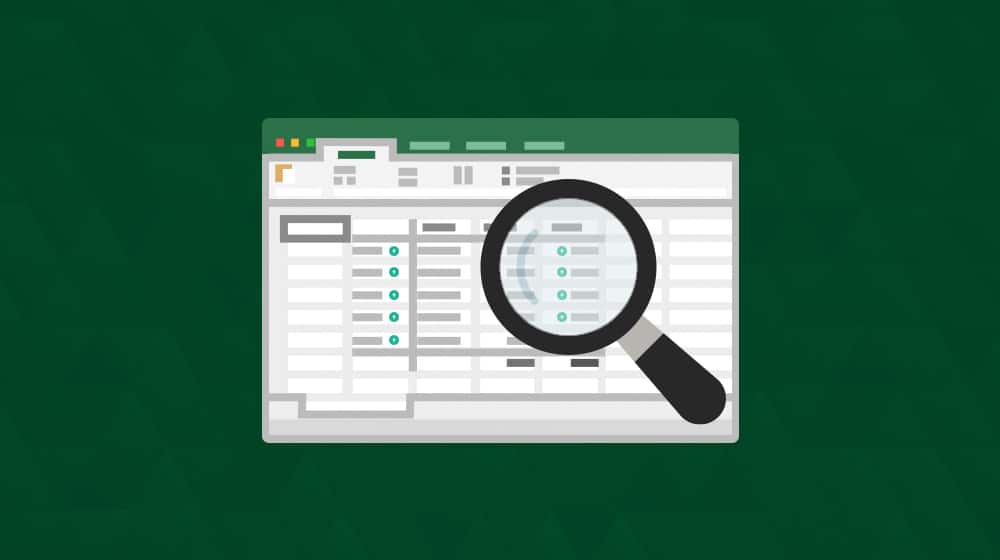
But that's also an excellent illustration. A single topic can have a lot of different levels of complexity. Fundamentally, both math operations are part of math. You take for granted that 1+1=2, but there's a ton of logic that goes into proving that that's true, and when you dig deep enough, you have to define things like "what is a number" and "what is addition."
In general, though, topics tend to have a relatively narrow range of complexity where most discussion occurs. You don't need to prove that addition works when everyone accepts it as fact. You don't need to prove that Google ranking is essential to marketing before you can discuss what SEO is.
3. Factor three: the purpose of the content.
The alignment of the audience and the topic determines the complexity of the discussion and is defined by the purpose of the content.
Are you discussing high-level concepts and theories on equal footing with an expert? Are you taking the position of the expert and teaching the topic to novices to help them learn to increase their knowledge level? These two purposes will have different levels of complexity in the content you produce.
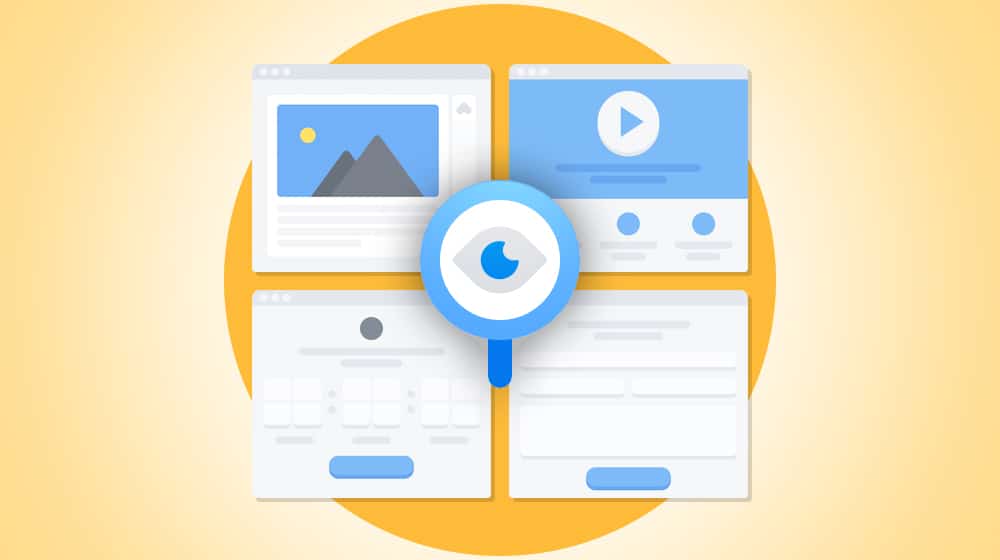
Balancing all three of these factors is how you determine what you should aim for in terms of reading level.
4. What should you aim for?
This question is where the tricky part comes in. What Flesch score should you aim for?
If you're concerned about reading level, it's okay to divide it into a basic set of three or four groups, avoid the ultra-simple and ultra-complex groups, and work within the middle ground.
More importantly, sometimes seeking a more straightforward reading level makes your writing harder to understand. In some cases, it can even get in the way of the content you're writing. Most of the time, though, there's no reason to bother in the first place.
For example, as I already mentioned, "readability" is a complex word with five syllables, which cranks up your grade level reading score. You could replace it with "ease of reading," which would mean more or less the same thing. Still, since it's three words rather than one, complexity increases slightly in the words-per-sentence sense. Since both options have four syllables, complexity goes down in a syllables-per-word sense, but was the lower score worth it?
If anyone does a Google search for readability and its impact on SEO, you won't show up because you don't use the keyword "readability" at all. Sure, grade schoolers can understand your content, but they won't find it unless you print it off and hand it out in your classroom.
Your average sentence length is a bit easier to manage. Still, suppose you're listing a series of critical chronological items, quoting somebody else, or otherwise listing out a long sentence for an important reason (like this one). In that case, your sentence length will be longer, and splitting those into short sentences for a higher score isn't always the best choice for your overall content quality.
So, we know now that the Flesh score isn't that important for SEO, at least for most audiences. What should you do instead?
How to Write Great Content
Here's my general advice for writing great SEO-friendly content.

You don't have to take it, but at least give it a look.
- First, pay attention not just to your topic but to your audience. Write for people, not for tests and algorithms. It doesn't matter how well you appease Flesch if your readers are put off by it.
- Second, stop seeking perfect metrics to aim for. There's no one "best" Flesch score, just like there's no ideal keyword density and no ideal number of backlinks for a blog post. You're more likely to get in trouble trying to warp your content around a test than just writing for your audience.
- Don't be afraid of complexity. Complexity is okay as long as the people you're talking to have a similar understanding of the topic or if you're breaking down those complex topics in a helpful and digestible way. Plus, complexity can be enticing. How many of you clicked that link up above about proving that 1+1=2? It's likely knowledge you didn't have, even about simple addition, and curiosity might mean you learned something new today.
As with all things in digital marketing, context is vital. Plan your content marketing for the people you're targeting, and leverage complexity to help entice them to learn more, investigate more, and click more links. After all, what else are you trying to do with your content if not making it engaging to your readers?
Do you pay attention to the Flesch Reading Ease test, and if so, did this article change your mind? Do you disagree with anything that I've said, or have you found it helpful in some cases with your SEO endeavors? Please share with us in the comments section below; I'd love to chat with you and start a conversation on this subject!




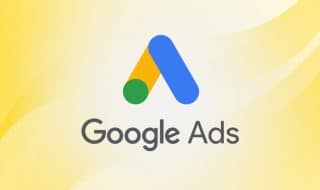





June 22, 2023
Wow, what a load off my mind. I'm just getting into the SEO game and I was obsessing over this silly little metric for my articles. Both Yoast and Grammerly focus on it. And Yoast acts like it's all that. I'm promptly disabling the "Readability" feature on Yoast and will take your advice above and write for humans at whatever level the subject requires. Thanks!
June 24, 2023
No worries! I disabled it too haha.
Yoast is pretty old school. Rank Math is a lot more modern, I'm just too stubborn to switch over. But even Rank Math has some silly metrics like these.